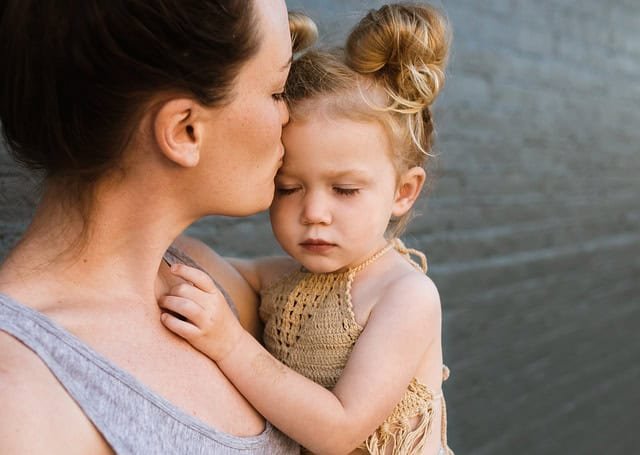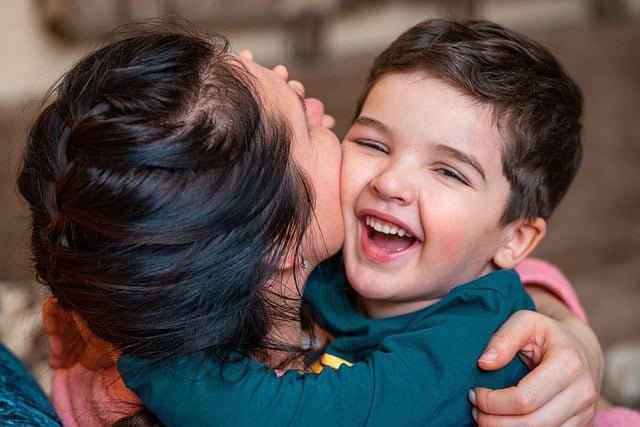Building confidence in young children is one of the most important steps in helping them grow into resilient and happy adults. Confidence allows children to explore their surroundings, take on challenges, and build meaningful relationships.
As children enter school, especially primary school, their understanding of the world is just beginning to develop, which necessitates creating a nurturing environment. So here are 7 practical ways to boost your child’s confidence, along with some simple, proven and actionable tips that can make a lasting difference in their early years.
Table of Contents
Never Compare – Ever!
This can’t be emphasised enough, as comparing a child with another is by far one of the most detrimental things parents and teachers can do to a child’s confidence. When you compare your child to others, whether it’s to a sibling, a friend, a neighbour, or another child in their class, it creates unnecessary pressure and sends a message that they are inadequate in some way.
Every child is unique, which makes their strengths, interests, and pace of development vary from those of others. So rather than comparing them to others, you need to celebrate their individuality and focus on their personal growth.
For example, if your child is struggling to learn to ride a bike, avoid saying things like: “Look at your friend. He can ride his bike already and he rides so well!”
Instead, encourage your child by saying: “I can see you’ve been practicing a lot, and I’m so proud of you for trying and not giving up. You’ll get there in your own time.”
This approach helps your child understand that it’s okay to be at their own pace and that their efforts are valued, regardless of how others are doing.
Another example might be in the classroom setting. If your child is taking a little longer to grasp a particular skill, such as writing or math, resist the urge to compare them to their peers.
Instead, focus on their progress and encourage them by saying: “I’ve noticed how much you’ve improved. Keep practicing, and you’ll keep getting better!”
This reinforces the idea that improvement is more important than comparing themselves to others. When children are not compared to others – either by others or by themselves, they are more likely to feel comfortable in their own skin and embrace their unique abilities.
They learn to trust their own process and feel proud of their personal achievements, rather than constantly measuring themselves against others.
This approach is one of the most important ways to boost your child’s self-confidence because it allows them to develop a healthy sense of self-worth based on their own growth, and not dwell on external comparisons.
Acknowledge Emotions
Acknowledging your child’s emotions is one of the most powerful ways to build their confidence and emotional intelligence, as they often experience a range of emotions which they neither fully understand, nor know how to express.
By validating their feelings, you help them feel seen, understood, and supported, which contributes to their sense of self-worth and confidence.
For example, if your child comes home upset because a friend didn’t want to play with them, you might be tempted to say: “Don’t be sad; it’s not a big deal.”
However, this approach can dismiss their feelings and make them think their emotions aren’t important. Instead, try saying: “I can see that made you feel sad, and I want you to know that it’s okay to feel upset when things like this happen. So let’s talk about it and figure out what we can do.”

Teaching your child to identify and label their emotions is another essential step.
This not only shows your child that their feelings are valid but also opens the door for meaningful conversations. Most of all, it introduces them to doing what it takes to deal with a problem on hand and find solutions.
For instance, if they’re feeling frustrated because they’re struggling to tie their shoes, you could say, “I see you’re feeling frustrated because you find this to be tricky. That’s a normal feeling when you’re learning something new, and I want you to know that I too felt that way when I was your age.”
Saying so helps them know that they’re not the only one to feel so. It also helps them connect their experiences to specific emotions, making it easier for them to process and manage their feelings in the future.
Acknowledging emotions doesn’t mean allowing negative behaviour. If your child acts out in anger, calmly help them understand the emotion behind their actions.
For example, “I know you’re feeling angry because your block tower fell, but throwing toys is Not okay. So let’s figure out another way to handle it.”
This approach teaches your child to regulate their emotions constructively, building resilience and emotional confidence. To build on this approach, it is also important that you also learn about the 5 building blocks for their emotional well-being, which we have covered in this article.
By consistently acknowledging your child’s emotions, you’re teaching them that all feelings, be it positive and negative, are part of life – and normal. Understanding and being aware of this fact will help them develop a healthy emotional foundation, which is a crucial aspect of self-confidence.
When children feel secure in expressing their emotions, they’re better equipped to handle challenges, communicate effectively, and navigate social situations. Acknowledging emotions is one of the most empathetic and impactful ways to boost confidence, as it empowers them to understand and trust themselves.
Praise – Especially When They Deserve
Praise is one of the most effective tools in building your child’s confidence. Having said, it is essential to use it wisely, as over-praising can lead to children becoming overly dependent on external validation – even through their adult life!
Instead, focus on praising the effort, improvement, and specific qualities that showcase your child’s unique abilities. This encourages children to develop intrinsic motivation, which is more sustainable than relying on praise alone.
For example, if your child works hard to complete a task, such as drawing a picture or finishing a puzzle, avoid general praise like: “You’re amazing!” Instead, give them specific feedback like: “I love how you carefully chose the colours for your drawing. You really paid attention to detail, and it looks beautiful!”
By focusing on effort and process, rather than just the end result, you help your child see the value in their own hard work, which reinforces their confidence.
Another way to praise effectively is by highlighting progress rather than perfection. If your child is learning to write, don’t just praise them for writing perfectly—acknowledge the progress they’ve made.
For instance, you might say, “I can see you’re writing your letters more neatly today. You’ve come such a long way since last week!”
This encourages a growth mindset, teaching your child that improvement is what matters most, not just flawless execution. It’s also helpful to praise your child for qualities that contribute to their success, like perseverance, curiosity, or kindness.
By recognizing these traits, you reinforce the idea that confidence is built on internal values, not external accolades. This type of praise helps children develop a healthy self-esteem that isn’t reliant on constant validation from others.
Praise is a powerful tool. When used appropriately, it helps children feel proud of their achievements and motivates them to keep improving. At the same time, it builds their self-worth by reinforcing the idea that their efforts, rather than their outcomes, are what truly matter.
Never Be Over-Protective
While it’s natural for parents to want to protect their children from harm and disappointment, over-protectiveness can unintentionally hinder their development of independence and confidence.
When children are shielded from every challenge or difficulty, they miss out on valuable learning experiences that teach them how to cope, solve problems, and build resilience. Allowing your child to face age-appropriate challenges on their own is an important step in fostering their self-confidence.

For instance, when your child encounters a new situation, like speaking in front of a class or trying a new activity, you might feel the urge to step in and ease their discomfort. However, by doing so, you might unintentionally send the message that they aren’t capable of handling things on their own.
Instead, offer support by encouraging them to take small steps independently. If your child struggles to tie their shoes, you could say: “I know it’s tricky, but you’re learning something new, and that’s exciting. Let’s take it one step at a time, and I’ll be right here if you need help.”
Another way to avoid being over-protective is by teaching your child how to handle failure. Instead of preventing them from making mistakes, offer guidance on how to try again and learn from the experience.
For example, if your child doesn’t succeed in a task like building a Lego set or completing a puzzle, say, “It’s okay that it didn’t work out this time. What do you think we can do differently next time?”
This approach not only encourages your child to keep trying but also builds their confidence in their ability to solve problems on their own.
Giving your child the freedom to explore and learn through activities, at their own pace – without constantly stepping in to fix problems, will lead to greater sense of independence in them. This is an essential way to boost your child’s confidence, as it helps them realize that they are capable and strong enough to handle life’s challenges, even if they don’t get everything right the first time.
Set Realistic Goals
Setting goals for your child is a great way to boost their confidence, but it’s crucial that these goals are realistic and achievable for their age and developmental stage. Unrealistic expectations can lead to frustration and disappointment, which can chip away at a child’s confidence.
On the other hand, when goals are tailored to their abilities and interests, they’re more likely to succeed and feel proud of their achievements. Setting achievable goals also teaches your child that success is the result of consistent effort, not luck or perfection.
Start with small, manageable goals. If your child is learning to read, instead of setting an overwhelming target like: “Read 10 pages today,” focus on something smaller and more attainable, such as: “Read two pages with me, and continue if you would like to read more.”
This gives them a sense of accomplishment without causing unnecessary pressure. After completing the goal, celebrate it! Say: “You did it! You read the pages well too!” This not only boosts their confidence but also encourages them to tackle the next goal with the same enthusiasm.
In addition to breaking down large tasks into smaller goals, it’s also important to make sure the goals align with your child’s interests. If your child loves drawing, setting a goal like: “See if you can draw three pictures by the end of the week.”
This can be more motivating than asking them to finish a complicated project they’re not interested in. This type of goal setting shows your child that their individual passions and efforts matter, reinforcing their belief in their own capabilities.
By focusing on realistic goals, you’re teaching your child the value of hard work and perseverance. Every small success becomes a building block that strengthens their confidence, and as they meet these goals, they’ll begin to feel more capable of achieving bigger challenges in the future.
Setting and achieving realistic goals is one of the most effective ways to help them understand that they are fully capable of accomplishing what they set their mind to.
Use Positive Language
The language you use when interacting with your child shapes their self-image and influences their behaviour. Positive language is not just about saying kind things; it’s about framing challenges and opportunities in ways that encourage a growth mindset, promote optimism, and build self-confidence.
Children are highly impressionable during their early years, so using words that uplift, motivate, and empower them can have a lasting impact on how they view themselves and the world around them.
For example, if your child makes a mistake while trying to complete a task, instead of saying: “You’re not doing this right”, try saying, “It looks like you’re having a little trouble here. Let’s think about how we can solve this together.”
This shifts the focus from failure to problem-solving, which not only helps your child feel supported but also teaches them that mistakes are part of learning and growth. Positive language helps children understand that challenges are a natural part of life and that they have the ability to work through them.

Another powerful use of positive language is in the way you encourage your child to take risks. If your child is hesitant to try something new, like asking a new friend to play or trying a new activity at school, instead of saying: “Don’t worry, you might not be good at it” try saying, “It’s great that you’re giving this a try! I am sure you’ll learn something new, even if it feels a little scary at first.”
This approach fosters a sense of bravery and encourages them to embrace new experiences with a positive attitude. Using positive language also means focusing on the effort your child puts in, rather than just the outcome.
For example, after a difficult task, say, “I can tell you worked really hard on that. Even if it wasn’t perfect, you kept trying, and that’s what counts!”
This reinforces the idea that effort is more important than perfection and encourages a mindset that values perseverance. The language you use in daily interactions plays a significant role in building your child’s confidence.
By consistently using words that encourage effort, growth, and resilience, you’re teaching your child that they are capable and worthy of success. Most of all, it helps them internalize a positive view of themselves and their abilities.
Appreciate Regularly
One of the simplest yet most impactful ways to boost your child’s confidence is by showing appreciation for their efforts on a regular basis. Children thrive when they feel that their efforts are noticed and valued.
Regular appreciation helps them internalize the idea that their hard work and achievements matter, which can significantly enhance their self-esteem. It’s important to remember that the praise doesn’t always have to be for the end result but for the effort and dedication your child shows.
For example, if your child attempts to build a tower using blocks and it topples over, instead of focusing on the failure, appreciate their perseverance. You could say, “I love how you didn’t give up when your tower fell down! You kept trying and that’s what makes you strong and special”
This type of encouragement shows them that making mistakes is part of the learning process, and what really matters is the determination to keep going. Regular appreciation also helps foster a sense of accomplishment.
If your child completes a task, such as helping you set the table or picking up their toys, even if it’s not perfect, express your gratitude: “Thank you for setting the table today! You’re such a big help around here.”
Recognizing even the small actions teaches your child that their contributions are meaningful. This kind of positive reinforcement validates their effort and encourages them to keep engaging with tasks, knowing that their input is valued.
By consistently expressing appreciation, you’re not only nurturing their self-worth but also reinforcing the idea that their efforts lead to positive outcomes. As a result, your child will begin to feel more capable and motivated to take on new challenges.
Conclusion
Building your child’s confidence is a gradual and ongoing process, but the results are incredibly rewarding. By implementing these 7 ways to boost your child’s confidence, you’re creating an environment where they feel supported, capable, and ready to take on new challenges.
Always remember that small gestures like regular appreciation, acknowledging their emotions, and using positive language can have a lasting impact on their self-esteem. As your child grows, these habits will help them develop a strong sense of self-worth that will guide them through many stages of life.
When you consistently encourage your child in thoughtful, meaningful ways, you’re empowering them to believe in themselves and their abilities.